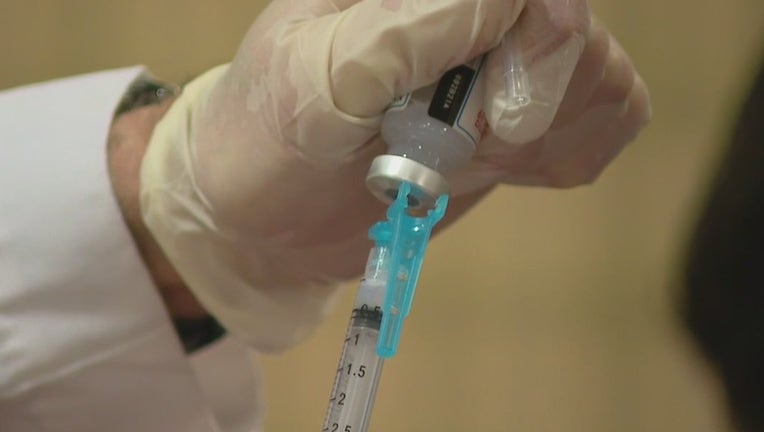Vaccine passports for the fair or sporting events? Key GOP senator says not in Minnesota

COVID-19 vaccine
ST. PAUL, Minn. (FOX 9) - A key Republican senator says Minnesota should not require people to prove they've gotten a COVID-19 vaccine.
As the end of the coronavirus pandemic nears, companies and governments alike are debating vaccine passports to safely resume daily life. In Minnesota, there's a restriction: the state's vaccination records are considered private data, meaning only individuals can request their own records.

Vaccine passports for the fair or sporting events? Key GOP senator says not in Minnesota
A key Republican senator says Minnesota should not require people to prove they've gotten a COVID-19 vaccine.
Senate Health Committee chair Michelle Benson is proposing legislation to prevent Minnesota from moving toward a vaccine passport system. In an interview, Benson said she thinks it's a "good idea" for people to get vaccinated, but passports aren't required for any other inoculations.
"What I’m concerned about is public pressure, say from corporations or an entity like the State Fair, to say, 'You have data on who’s been vaccinated, you should just share it with us,'" said Benson, R-Ham Lake. "That kind of pressure can cause people to move. Let’s get out in front of it."
So-called vaccine passports are among the thorny issues confronting Minnesota as it starts to emerge from a pandemic that has killed nearly 7,000 Minnesotans and caused more than 521,000 confirmed infections. Nearly 1.1 million people here -- roughly 25 percent of the state's adults -- are now fully vaccinated against COVID-19.
Right now, the only physical proof that someone has been vaccinated is the small paper card he or she is handed when leaving a vaccine site. The FBI has warned about scammers, and 45 attorneys general including Minnesota's Keith Ellison have asked tech companies to police their websites for people selling fake cards.
The Mayo Clinic is part of a consortium called the Vaccination Credential Initiative that is seeking to create a verifiable digital and paper record of vaccinations that people could use for their return to work, school or travel.
It's unclear whether employers will seek proof-of-vaccination before allowing workers back into the office. It's legal to do so, said Susan Ellingstad, an employment law attorney in Minneapolis.
She said employers must make exceptions for workers who cite religious or medical reasons for not getting a shot. Locally, most employers are not imposing the requirement, she said.
"I think you’re going to see most of them not doing it and instead really encourage and incentivize employees," Ellingstad said, noting the possibility of paid time off or on-site info sessions. "I think whether you mandate it or not mandate it, there is a really big role for employers to play here by informing, educating and trying to persuade the employees to do this."
The U.S. lacks a centralized vaccination database, but Minnesota is among the states that maintains one.
If you lose your paper card and haven't taken a photo of it -- highly recommended, by the way -- you can call the Minnesota Health Department and get your records.
"Our preference is that people are attentive to the card and also take a picture," said Kris Ehresmann, the state's infectious disease director.
Because the information is considered private data, only individuals or their health provider can get access to their record, Ehresmann said.

